News & Commentary
Feb 09, 2017
Our Greatest Hits in Under Two Minutes
Want to get a better idea of how the American Civil Liberties Union has made America better? Take two minutes and watch our highlights reel.
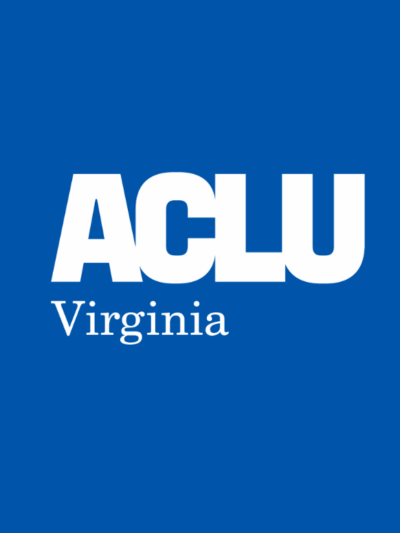
Aug 16, 2016
ACLU-VA Comments at Governor's First 'Listening Tour' Event on Police-Community Relations
The following remarks were delivered by ACLU of Virginia Executive Director Claire Guthrie Gastañaga at the first of four 'listening tour' events on the topic of police-community relations sponsored by Gov. Terry McAuliffe. The forum was held on Aug. 16, 2016, at the Richmond Police Academy.

Jul 06, 2016
So Much for the Fruit of the Poisonous Tree
Who’s ready for a Fourth Amendment pop quiz?Imagine, if you will, the following scenario: a police officer detains you on the street admittedly without reasonable suspicion that you’ve committed a crime. The officer subjects you to a full-body pat-down under the guise of checking for weapons, and then demands to see your identification (which he’s not allowed to do constitutionally if you aren’t driving). When you produce your ID voluntarily even though not required to do so, the officer takes it and returns to his cruiser to run your info through the warrant database. When he returns, he informs you that you are now under arrest, and your entire person, including any bags you are carrying, is now subject to a probing, invasive search.Question: Because the officer did not have reasonable suspicion to detain you in the first place, is anything found during the ensuing search admissible in court?Answer: It depends. Did you forget to pay your traffic tickets? If so, and there’s a warrant out for your arrest, the answer is yes.Absurd though it may sound, this is the ruling that five of our finest legal minds recently gave their blessing to this in Utah v. Strieff. The U.S. Supreme Court opinion, authored by Justice Clarence Thomas, created a new and deeply troubling loophole that allows police to dance around the usual protections of the Fourth and Fifth Amendments.[1]The majority in Strieff held that when an officer illegally detains a person and then discovers an outstanding warrant for the person’sarrest, any evidence found during a search incident to that arrest may be used against the person in court. They reasoned that an outstanding warrant, which an officer may be blissfully unaware of before illegally detaining a person and demanding ID which the person isn’t constitutionally required to provide, is an “attenuating” circumstance that fully vindicates the unlawful detention leading to the discovery of such evidence. Essentially, finding a valid (if wholly unrelated) warrant breaks the causal connection between the illegal stop and the evidence seized because of that stop.And yes, that warrant could be for an unpaid traffic ticket.This ruling is troubling for a host of reasons, many of which are thoroughly outlined in Justice Sonia Sotomayor’s scalding dissent. And while much has already been said of the majority’s blind reliance on an outstanding warrant to justify an illegal detention post facto, it bears repeating just how potentially damaging this ruling could be for many of our most vulnerable communities here in Virginia.To begin with, the Strieff majority entirely glosses over the fact that a detective not only detained and patted-down a person without reasonable suspicion, but also demanded he produce identification to be run through the warrant database. The short-term detainment and pat-down of the kind found in Strieff is lovingly known as a Terry[2] stop, and is meant to be a brief detainment of a person that an officer “reasonably suspects” has committed or is soon to commit a crime. Several states, including Utah but not including Virginia, have "stop-and-identify" statutes that empower officers to demand that a person identify himself or herself during a valid Terry stop[3] but even these statutes constitutional cannot require a non-driver to produce ID or provide any additional information beyond a name, like an address or birthdate. But the stop at issue in Strieff was not valid – it was not supported by reasonable suspicion and was, by the detective's own admission, illegal. The majority did not endeavor to explain why this was (apparently) a non-issue.Nor did the majority make clear why running a warrant check during a temporary detention is in any way necessary or legal. A pat-down check for weapons and brief questioning are normal, but running a warrant check during a pedestrian Terry stop has never been a matter of course. The court cited its own decision in Rodriguez v. United States to characterize a warrant check as a “negligibly burdensome precaution” to ensure officer safety.[4]Their reliance on Rodriguez falls a bit flat, however, when placed in its proper context. The full quote from which the "negligibly burdensome" language was taken reads: "Traffic stops are 'especially fraught with danger to police officers,' so an officer may need to take certain negligibly burdensome precautions in order to complete his mission safely."[5] Strieff, of course, had nothing to do with a traffic stop. The connection to officer safety is, to use the court’s term, attenuated. In this case, Mr. Strieff had already been detained and patted down; it is not clear how checking for outstanding warrants is a further “safety” precaution, and the Court's precedents do not provide any guidance.The sum total is this: a man was stopped and detained illegally, ordered to produce identification illegally, and his identification was run through the warrant database - you guessed it - illegally. But the majority skated right by all of these illegal acts and hung their hat entirely on Strieff having a warrant out for his arrest, which in their view made the prior unconstitutional acts by the detective irrelevant.The court’s faith in warrants is wholly misplaced. Warrants can be issued for many reasons, not all of which point to criminal activity. Warrants can be issued for unpaid court fines or child support. Such warrants are commonplace, especially in lower-income areas. The situation is even more precarious in Virginia, where our laws allow any person to go before a magistrate and swear out a warrant for someone else’s arrest. Warrants for felonies require approval of the Commonwealth’s attorney, but misdemeanor warrants do not. With warrants being so pervasive and easy to acquire, the potential for abuse under this ruling is substantial.During oral arguments, Justice Sotomayor and Justice Elena Kagan questioned counsel for the state of Utah about how this practice would affect communities like Ferguson, Mo. After its investigation, the U.S. Department of Justice found that 80 percent of the population had outstanding warrants, mostly for minor traffic offenses. If four out of every five people have a warrant, then why not just roll the dice and stop anyone and everyone without cause? Chances are police will find something that will excuse their actions.The response from counsel was ultimately adopted by the majority, and it shows a clear disconnect between the bench and the reality on the ground. They reasoned that such “dragnet” searches were “unlikely” because this would “expose police to civil liability,” and that evidence could still be suppressed if a judge found the stop to be “flagrant.” [6]The court’s reasoning is naïve. While it is true that civil liability is possible, qualified immunity (which tips the scales of justice in favor of police) makes recovery unlikely for the average plaintiff, even with sophisticated counsel. In any event, civil actions are not a replacement for suppressing illegally-obtained evidence – the possibility of a civil action does not have the deterrent effect that suppression is meant to impose, and it does nothing to keep a person who has been unlawfully detained and searched from going to jail.A line of cases stretching back to the 1920s espouse the principle that the only proper means to deter unconstitutional police practices is to render such practices pointless, and this is best done by making illegally-obtained evidence inadmissible in court. The Strieff decision sends just the opposite message by not only failing to deter unconstitutional policing, but arguably encouraging it. Rather than stopping police from violating our Fourth and Fifth Amendment rights, the Strieff majority have drawn police a roadmap around them.With the ruling in Strieff, the court has again lost its way in its reading of the Fourth Amendment. Perhaps, a few years down the road, those justices in the majority will be confronted with a new case, one demonstrating the awful ramifications that Justice Sotomayor predicts their decision will have on the already fragile relationship between citizens and police. If that day comes, one might hope they would change course and rethink the reasoning underlying this decision. Until then, however, remember: pay your fines and court fees and work with the ACLU of Virginia on changing state law to provide the protections against unreasonable searches and seizures you thought that the Fourth Amendment already provided.
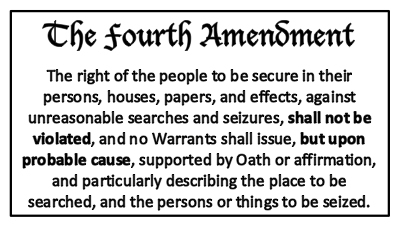
Jun 23, 2016
SCOTUS Makes the Call on Whether Refusing a BAC Test Can be a Crime
UPDATED June 23, 2016 Today the U.S. Supreme Court released its opinion on the case of Birchfield v North Dakota which questioned whether a state could criminalize a person’s decision to refuse to submit to a blood test when suspected of driving under the influence of alcohol. This ruling has an immediate impact on Virginia and nullifies part of the Code of Virginia § 18.2-268.3.Virginia is one of only 12 states that criminalize a person’s refusal to submit to a breathalyzer or blood test. In its ruling today, the Supreme Court reaffirmed a state’s ability to impose sanctions on someone who refuses a test under the legal doctrine of “implied consent.” Since driving is deemed to be a privilege, not a right, all drivers in Virginia give “consent” to having their breath tested at any time, according to state law. The Supreme Court today said the penalty for refusing a blood test, though, cannot carry criminal consequences. The court noted. “It is one thing to approve implied-consent laws that impose civil penalties … but quite another for a state to insist upon an intrusive blood test and then to impose criminal penalties on refusal to submit.”Virginia drivers will no longer have to face criminal charges for refusing to submit to an intrusive blood test. However, the ruling leaves in place criminal penalties for refusing a breathalyzer test. The Supreme Court distinguished the breath test as not as intrusive as drawing blood and the interest of the state keeping drunk drivers off the road outweighed an individual’s Fourth Amendment protections against unreasonable searches and seizures.Original Post By Rob Poggenklass Tony Dunn Legal FellowWhen police pull you over and suspect you’ve been drinking and driving, an investigation is already underway. In that situation, it’s important to know what you can and cannot do, and the rules may be about to change.In Virginia, there is no penalty for refusing to do field sobriety tests, such as counting backwards, reciting the alphabet, walking in a straight line and counting while touching each finger to your thumb.You can refuse to do any of these tests and others. The police may still suspect you of driving under the influence, but they won’t have gained any evidence to use against you at trial.When it comes to refusing a breath or blood test of your blood-alcohol content, the law is quite different. In all 50 states, if you refuse such a test, your driver’s license will almost certainly be suspended, likely for a year. Plus, in Virginia and 12 other states, you could end up in jail – whether you were driving under the influence or not.Since a case in 1966, the law has been clear that blood alcohol tests do not violate the Fifth Amendment’s protection against self-incrimination. In a case decided that year, the U.S. Supreme Court found that drawing a man’s blood did not amount to forcing him to give evidence against himself.More recently, however, defendants have raised questions about whether blood and breath tests violate another important constitutional protection: the Fourth Amendment right against warrantless searches of the person. Should someone go to jail for refusing to allow police to investigate the contents of his or her own body?The U.S. Supreme Court agreed earlier this week to decide whether states can jail someone for refusing a blood or breath test if the person is suspected of driving under the influence and police do not have a warrant.The Court accepted three cases for review – two from North Dakota and one from Minnesota – in which the defendants were convicted of the crime of refusal. Like North Dakota and Minnesota, Virginia makes it a crime to refuse such a test, though in the Commonwealth refusal is only a crime on the second or third offense.In all three cases, the defendants argue the laws that criminalize refusal violate the Fourth Amendment’s protection against warrantless searches.In their petition to the Court, lawyers for the defendants in Minnesota and North Dakota argue that “government may not criminalize a person’s refusal to submit to an unconstitutional search – that is, a search unsupported by a warrant or a valid exception to the Fourth Amendment’s warrant requirement.”The crime of refusal relies on a doctrine called “implied consent.” All 50 states have enacted laws that require any person who drives a vehicle on public roads to consent to a blood alcohol test if the person is suspected of driving under the influence. When a person is stopped and questioned on suspicion of driving under the influence and refuses to provide a blood or breath test, that person has revoked the implied consent. In 13 states, including Virginia, refusal can result in jail time.Like North Dakota and Minnesota, Virginia criminalizes refusal. But Virginia’s law is a bit different than Minnesota’s or North Dakota’s, because Virginia does not criminalize first-offense refusal.A first offense carries only a civil penalty: a 12-month suspension of the person’s driver’s license, with no restricted license allowed. Second-offense refusal, however, is a Class 2 misdemeanor that carries up to six months in jail and a $1,000 fine. Third-offense refusal is a Class 1 misdemeanor, punishable by up to 12 months in jail and $2,500 fine.Strangely, under Virginia law, a person who has never been convicted of refusal but who has been previously convicted of driving under the influence can be prosecuted for second-offense refusal.Refusals are commonly used in driving under the influence prosecutions in the Commonwealth, often as bargaining chips, sometimes as additional punishment. As many people have discovered, driving under the influence carries significant criminal penalties, as well as a 12-month driver’s license suspension. But even when a person is convicted of driving under the influence, courts often grant a restricted license, so that the person can still drive to and from work and doctor appointments.Courts cannot, however, grant a restricted license to a person found guilty of a refusal. There’s even a law that encourages defendants to plead guilty to driving under the influence by allowing a court to dismiss the refusal charge after the person pleads guilty to driving under the influence.The Supreme Court will likely hear arguments on the refusal cases in April 2016, and render a decision by the end of June. If the Court invalidates the crime of refusal under the Fourth Amendment, as the defendants in all three cases have requested, the decision would have a significant and immediate impact in Virginia.
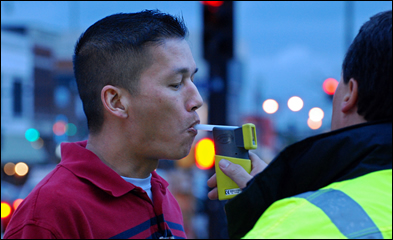
Jun 15, 2016
Unparalleled Power
Download "Unparalleled Power: Commonwealth's Attorneys, Voters, and Criminal Justice Reform in Virginia."This report examines how uncontested Commonwealth's attorney elections reinforce the status quo, bypassing public debate and engagement. This report also makes recommendations and offers concrete steps to change this broken system.
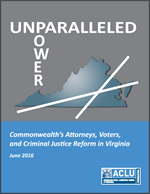
May 31, 2016
Should Independent Review of All Police-Involved Killings be Mandated?
No names. No video. No charges.That has become the common refrain from law enforcement whenever someone dies at the hands of police in Virginia.Last week, Roanoke County Police Chief Howard Hall and Commonwealth’s Attorney Randy Leach sang the familiar song at a news conference regarding the Feb. 26 police killing of 18-year-old Kionte Spencer.Snippets of police dash-cam video were shown to selected reporters and county officials prior to the news conference. Chief Hall, however, stuck to the larger script, maintaining his position that no video will be released to the public even though the criminal and administrative investigations are now closed.Chief Hall also continues to refuse to name the two officers who shot and killed Mr. Spencer as he walked along a public road early in the evening while carrying a broken BB pistol. Mr. Spencer’s family and others believe that he did not respond to police commands to drop the weapon because he was wearing headphones. Officers told investigators they shot Mr. Spencer when he pointed the gun at them after two Taser jolts didn’t work. At least one reporter who viewed the redacted video could not corroborate the officers’ statements that Mr. Spencer raised his gun.Tearing up at the news conference, the chief cited concern for the officers’ privacy and safety to justify continued secrecy.At the same time, Chief Hall apparently has little if any regard for Mr. Spencer’s privacy, indiscreetly recounting details of the dead young man’s “very troubled life” and revealing confidential information about Spencer’s alleged “mental health issues” at the news conference. We won’t go into those details here because, despite what the chief seems to think, they are irrelevant to why Mr. Spencer was killed.Regarding safety, the ACLU of Virginia respects the need to assure that every officer involved in a police shooting – and the officers’ families – are safe from harm. Nonetheless, we believe the names of officers involved in a shooting should be released no later than 48 hours after the incident.Like the law enforcement author of an article in The Police Chief, the self-described “professional voice of law enforcement,” we believe that this is the “best policy” for all law enforcement agencies to follow, particularly if they wish to earn the trust of the communities and people they police. Two days is more than enough time for any law enforcement agency to do what is reasonably necessary to ensure that any real issues regarding the safety of an officer or his or her family are addressed.Finally, the chief and the commonwealth’s attorney said the officers won’t be charged with any crimes. Lacking names and video, how is the public to trust that this is the right decision?Kionte Spencer is one of 11 people police have shot dead in Virginia so far in 2016. Yet, not one of the involved officers’ names has been released and none have been charged.Perhaps all of the officers acted appropriately and none should have been charged. But when video evidence exists, why not let the public see what happened? What is the point of having dash- and body-cams for accountability if the police hide behind exceptions granted by the Commonwealth’s notoriously flaccid Freedom of Information Act in nearly every situation?If police want the public’s trust when critical incidents occur, it’s time they start trusting the public with information and knowledge about their actions and decisions, particularly when someone is injured or killed as a result of those actions.If Virginia law enforcement agencies are unable to shift from a culture of secrecy to a culture of transparency voluntarily, it’s time for the legislature to dial back the exceptions to FOIA that facilitate the secrecy culture or for local elected officials to impose positive disclosure policies on departments within their jurisdiction.It’s time for responsible officials to require public disclosure of the names of officers involved in critical incidents within 48 hours.It’s time to explore whether the public’s interest in constitutional community policing would be better protected if law enforcement agencies were required to make records of such incidents (including video recordings) public as soon as decisions are made about administrative or prosecutorial actions.And, perhaps it’s time to mandate that all police-caused fatalities be investigated by a state-level, multi-disciplinary team akin to the team that investigates all child fatalities to ensure that every death is reviewed impartially with a view toward better education, prevention and training of law enforcement statewide and prosecution of responsible parties is initiated where indicated.

May 09, 2016
The Federal Government & More States Reforming Use of Solitary Confinement; Will Virginia be One of Them?
The movement to expose the inhumanity of solitary confinement is gaining momentum.In June 2015, U.S. Supreme Court Justice Anthony Kennedy beckoned for a case to examine the use of solitary confinement. In July 2015, President Obama ordered the Justice Department to review the use of solitary confinement in federal facilities. California settled a lawsuit in September 2015 brought by prisoners at Pelican Bay State Prison that will overhaul the use of solitary confinement. In that case, more than 500 prisoners had been held in solitary confinement for more than 10 years with 78 having been held for more than 20 years.In fall 2015, there was a breakthrough moment for the end-solitary movement when 15 heads of corrections agencies from around the U.S., as well as leading academic experts and advocates, released a set of recommendations to reform solitary confinement.In January 2016, President Obama banned solitary confinement of juveniles in federal prisons and announced sweeping reforms to reduce the use of the practice against adult prisoners in the system as well. The president also called on the nation to rethink solitary confinement as an affront to our common humanity.The turning point for reforming the use of solitary confinement in the past few years is obvious. Expert research conducted in a variety of scientific fields on the effects of the practice is overwhelmingly damning. The physical and psychological effects of isolating a person for 23 hours a day for lengthy periods of time, sometimes even decades, with little or no human interaction or sensory stimuli, literally drives people insane.Often, the damage is irreversible. Aside from the inhumanity of the practice, correctional officials are beginning to accept that solitary confinement costs taxpayers too much to maintain and actually harms public safety instead of protecting us. Prisoners too often are released back into our communities unprepared to re-enter community life. Sometimes they are released directly from solitary confinement where they experienced immense suffering, and the consequences can be shocking.The ACLU of Virginia has asked Governor McAuliffe to follow the President’s lead at the state level by 1) banning solitary confinement of juveniles in state and local facilities; and 2) developing and implementing effective strategies to reduce solitary confinement of adults in the Commonwealth’s state and local correctional facilities. We are still working to make that happen.Our work is part of a nationwide effort by the ACLU and its affiliates across the country, working together with other advocates, to conduct public education campaigns that uncover the ugly consequences of solitary confinement in prisons and dispel the myths behind its justification, advocate for changes to end its routine use and initiate litigation where education and advocacy is unsuccessful.In December 2015, the ACLU’s affiliate in New York (NYCLU) announced a groundbreaking, historic settlement with the New York Department of Corrections (NYDOC) that will overhaul and reduce the use solitary confinement in one of the country’s largest penal systems. The settlement comes as a result of NYCLU’s class-action lawsuit file in 2012, Peoples v. Fischer, and after years of negotiations with the state.The settlement reached by the NYCLU in New York, that was approved by a federal judge on March 31 sets a model for the nation. The settlement promises to: 1) reduce the number of people in solitary; 2) reduce the time people spend in solitary; and 3) alter the conditions of solitary confinement by abolishing some of its most dehumanizing aspects and emphasizing rehabilitative features that will improve safety for those inside the prison and the public.NYDOC will implement a step-down program for prisoners for the first time that advocates hope will be much shorter in duration than other states’ programs. Further, getting out of solitary confinement will not be dependent on successful completion of the step-down program. The program simply requires that a prisoner put forth effort.The settlement also promises that prisoners who commit minor infractions will not be sent back to solitary confinement automatically. While the NYDOC settlement isn’t perfect, the result is that persons with serious mental illness will no longer be held in solitary confinement. A court will monitor implementation of the settlement that will result in millions of dollars of investment to achieve the promised reforms.We have a lot of work to do in Virginia to live up to the model set by New York. The actions we’ve asked the Governor to take would move us in the right direction but more must be done to reform use of solitary in Virginia’s adult and juvenile correctional facilities.Hidden away in the deep corner of Southwest Virginia is the supermax Red Onion State Prison (ROSP). ROSP is a long way from VDOC headquarters and its oversight in Richmond.The prison came under fire in 2012 for its use of solitary confinement and subsequently, officials put in place a “step-down” program in which prisoners in solitary can participate and behave their way out of solitary. The program sounds great in theory (and it received some positive press attention accordingly); however, many prisoners suffer from serious mental illnesses that prevent them from conforming their behavior to the standards set in the program.As for the rest of the prisoners, it takes an average of 18 months to work their way through the program, much longer than programs in other states. Also, a prisoner in Virginia only gets out of solitary confinement if he successfully completes the program. What qualifies as successful completion remains a mystery, and completion doesn’t prevent a prisoner from being sent back to solitary confinement.Since the Virginia step-down program was implemented at ROSP, few updates have been publically released. The information that has been released raises more question than it answers. For example, the Virginia Department of Corrections reported that the number of filed incident reports and grievance forms had been dramatically reduced. In fact, the ACLU of Virginia has received reports that incidents and grievances are not down because VDOC’s reform measures are working, but because of actions by correctional officers.We’ve been told that on-the-ground correctional officers won’t give prisoners the necessary forms and, at times, prisoners have suffered from physical acts of violence or the threat of violence if they want to report problems or attempt to address basic rights. This is just one of the alarming problems we’ve heard about at Red Onion State Prison.It is past time for VDOC to retain an independent expert to examine the effectiveness of its step-down program in light of the national recommendations made in the fall of 2015 and the terms of the New York settlement, and tell the people of Virginia what is really going on at Red Onion State Prison and other adult and juvenile facilities in the Commonwealth.At the very least, VDOC should reduce the length of time it takes to complete the step-down program at ROSP, and prisoners should not be sent back to solitary confinement automatically for minor infractions. Virginia prisoners suffering from serious mental illness should not be in solitary confinement at any correctional facility in Virginia– period.VDOC and ROSP must provide transparency and implement an effective plan that permanently moves away from this practice that makes a mockery of human rights. The effects of solitary confinement are destructive to the human body and mind – that is a universal truth.That truth alone should be enough to end the wholesale use of the practice and prohibit its routine use as cruel and unusual punishment under the Constitution. The Governor and VDOC should get serious about reforming solitary confinement before it’s too late.
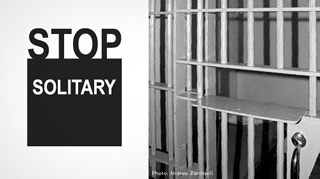
May 06, 2016
Freshen the Air in Your Car and Risk Getting Stopped by Police
If you have a tree air freshener – or anything else – hanging from the rear-view mirror of your car, police in Virginia can pull you over.For more than 25 years, Virginia law has prohibited drivers from hanging objects from the rear-view mirror “in such a manner as to obstruct the driver’s clear view of the highway.” Many law enforcement agencies ignore such a minor infraction. But some police officers have used this law as a means to stop drivers they want to investigate for other reasons.Virginia’s criminal defense lawyers have repeatedly challenged this police practice. Some have questioned whether an object hanging from the rear-view mirror provides police with enough of a reason to make a traffic stop – particularly when the officer cannot say whether the object actually obstructs the driver’s view.This week the Supreme Court of Virginia finally answered that question: yes, police can pull you over simply for having an object hanging from your rear-view mirror. It does not matter whether the object obstructs your view of the highway. Nor does it matter if the officer, after pulling you over, investigates whether the object obstructed your view. What matters is whether the dangling object “was sufficiently prominent to attract the officer’s attention during the brief moments that it passed through his field of view.”According to Virginia’s highest court, so long as the officer has a reasonable, articulable suspicion that a dangling object “could” obstruct the driver’s view of the highway, the traffic stop is legal.In the case decided by the Supreme Court of Virginia this week, Mason v. Commonwealth, an officer in Sussex County stopped Tony Jarrett on a highway in Waverly, Va. Jarrett was not speeding. The officer identified just one traffic infraction that caught his eye: the 3-inch by 5-inch parking pass that hung on Jarrett’s rear-view mirror.After the stop, the officer did not check to see whether the parking pass obstructed Jarrett’s view of the highway. In court, the officer testified that the pass “could” have obstructed Jarrett’s view.The traffic stop revealed that Loren Mason, a front-seat passenger in Jarrett’s car, was in possession of marijuana, ecstasy, cocaine and more than $3,000 in cash. Mason was convicted of three drug felonies and sentenced to a year and seven months in prison. He appealed to the Virginia Court of Appeals, which initially reversed his conviction based on the traffic stop. That court later reversed itself, 6–5. The Supreme Court of Virginia’s decision means Mason’s convictions will stand.Still have that air freshener, fuzzy dice or graduation tassel hanging from your rear-view mirror?

Apr 19, 2016
Tell the Governor You’d Rather Not: Say No to Secrecy on Death
Note: The following was published in the Editorial section of the Roanoke Times on April 19, 2016.The current debate over the death penalty in Virginia reads like a dark, twisted version of the party game “Would You Rather?”When the House of Delegates and Senate convene Wednesday, they will consider amendments the governor has suggested to House Bill 815. That bill, as originally proposed by Del. Jackson Miller (R-Manassas) would have made Virginia one of only two states in the country to revert to using the electric chair automatically if for any reason it can’t carry out a scheduled execution by lethal injection. Right now, the electric chair can be used only if the prisoner requests it.Legislators have been told they have but two options regarding the future of capital punishment: let the Department of Corrections concoct secret execution drugs or stop killing monstrous criminals.To his credit, the Governor is against a return to the electric chair – a ghastly, antiquated tool of torture and death. The alternative he offered, secret acquisition and administration of secretly concocted drugs, however, is not the “reasonable” compromise he says it is and should be rejected.The problem is the drugs for lethal injection – which polls show the majority of Americans consider to be far more humane than the electric chair – are getting more and more difficult to acquire. Why? Because pharmaceutical companies that make them do not want them used in executions.Virginia was able to carry out its last execution in October only by buying drugs from Texas, which shielded the identity of its own source. The last of that batch in the state’s possession expired last week.The governor’s answer? Allow the state to contract with compounding pharmacies – which normally mix drugs to meet the needs of specific patients under prescription – to concoct new drugs in secret. Under the amendments offered to HB 815, neither the identity of the pharmacy nor specifics of the drugs themselves could be disclosed to the public via the Virginia Freedom of Information Act or even in a civil lawsuit.The ACLU of Virginia rejects this plan on its face, and not just because we support repeal of the death penalty. If the state is going to engage in the process of terminating someone’s life for any reason, no matter how reprehensible the crime that person has been convicted of committing, the public must have full knowledge and understanding of the process.Under the amendments to HB 815, neither the public, the press, nor the legislature – not even the person to be executed – would ever know what lethal drugs were used or who was responsible for making them.The process being urged on the legislature would put the Department of Corrections in the position of engaging in an unregulated, secret drug experiment with human beings as the subjects. Those implementing the death penalty would be authorized to inject new, unapproved, never-before-used, undisclosed drugs into the veins of a living person with the intent to kill.Experimentation with lethal drugs in executions in other states hasn’t gone so well. Take, for instance, the disturbing 2014 case of Joseph Wood in Arizona, who was injected 15 times with experimental drugs over two hours before he finally expired. As he lay “gasping and gulping,” according to the Guardian, executioners just kept pumping more and more chemicals into his arm.Make no mistake, the “would you rather?” choice being served up to the legislature today is not a choice between the gruesome electric chair and a more humane but secretive method of execution.There is nothing humane about experimenting on people with undisclosed drugs against their will.Moreover, there is no urgency to choose today between two disturbing outcomes. The seven people on death row aren’t going anywhere and the two closest to being executed have both received stays as they await possible hearings by the U.S. Supreme Court.The legislature should reject the governor’s amendments and embark on a long overdue discussion of whether Virginia should join the 18 states that have made the ultimate humane choice to discontinue the death penalty entirely.Everyone knows no one wins a game of “would you rather?”, let alone one in which the stakes are so high.Let’s hope the legislature tells the governor they’d rather not play at all.

Stay Informed
Sign up to be the first to hear about how to take action.
By completing this form, I agree to receive occasional emails per the terms of the ACLU’s privacy statement.
By completing this form, I agree to receive occasional emails per the terms of the ACLU’s privacy statement.
